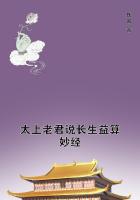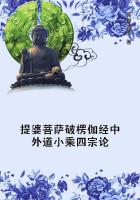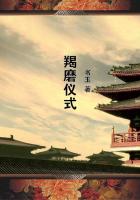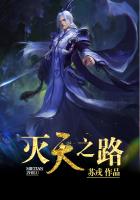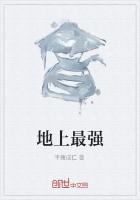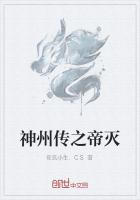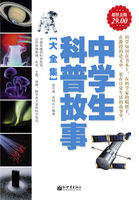Then the Goddess came in disguise to seek Helen on the wall, and force her back into the arms of her defeated lover. Helen turned on the Goddess with an abruptness and a force of sarcasm and invective which seem quite foreign to her gentle nature. "Wilt thou take me further yet to some city of Phrygia or pleasant Maeonia, if there any man is dear to thee . . . Nay, go thyself and sit down by Paris, and forswear the paths of the Gods, but ever lament for him and cherish him, till he make thee his wife, yea, or perchance his slave, but to him will I never go." But this anger of Helen is soon overcome by fear, when the Goddess, in turn, waxes wrathful, and Helen is literally driven by threats--"for the daughter of Zeus was afraid,"--into the arms of Paris. Yet even so she taunts her lover with his cowardice, a cowardice which she never really condones. In the sixth book of the Iliad she has been urging him to return to the war. She then expresses her penitence to Hector, "would that the fury of the wind had borne me afar to the mountains, or the wave of the roaring sea--ere ever these ill deeds were done!" In this passage too, she prophesies that her fortunes will be [Greek text] famous in the songs, good or evil, of men unborn. In the last book of the Iliad we meet Helen once more, as she laments over the dead body of Hector.
"'Never, in all the twenty years since I came hither, have I heard from thee one taunt or one evil word: nay, but if any other rebuked me in the halls, any one of my husband's brothers, or of their sisters, or their wives, or the mother of my husband (but the king was ever gentle to me as a father), then wouldst thou restrain them with thy loving kindness and thy gentle speech.' So spake she;weeping."In the Odyssey, Helen is once more in Lacedaemon, the honoured but still penitent wife of Menelaus. How they became reconciled (an extremely difficult point in the story), there is nothing in Homer to tell us.
Sir John Lubbock has conjectured that in the morals of the heroic age Helen was not really regarded as guilty. She was lawfully married, by "capture," to Paris. Unfortunately for this theory there is abundant proof that, in the heroic age, wives were nominally BOUGHTfor so many cattle, or given as a reward for great services. There is no sign of marriage by capture, and, again, marriage by capture is a savage institution which applies to unmarried women, not to women already wedded, as Helen was to Menelaus. Perhaps the oldest evidence we have for opinion about the later relations of Helen and Menelaus, is derived from Pausanias's (174. AD.) description of the Chest of Cypselus. This ancient coffer, a work of the seventh century, B.C, was still preserved at Olympia, in the time of Pausanias. On one of the bands of cedar or of ivory, was represented (Pausanias, v. 18), "Menelaus with a sword in his hand, rushing on to kill Helen--clearly at the sacking of Ilios." How Menelaus passed from a desire to kill Helen to his absolute complacency in the Odyssey, Homer does not tell us. According to a statement attributed to Stesichorus (635, 554, B.C.?), the army of the Achaeans purposed to stone Helen, but was overawed and compelled to relent by her extraordinary beauty: "when they beheld her, they cast down their stones on the ground." It may be conjectured that the reconciliation followed this futile attempt at punishing a daughter of Zeus. Homer, then, leaves us without information about the adventures of Helen, between the sack of Tiny and the reconciliation with Menelaus. He hints that she was married to Deiphobus, after the death of Paris, and alludes to the tradition that she mimicked the voices of the wives of the heroes, and so nearly tempted them to leave their ambush in the wooden horse. But in the fourth book of the Odyssey, when Telemachus visits Lacedaemon, he finds Helen the honoured wife of Menelaus, rich in the marvellous gifts bestowed on her, in her wanderings from Troy, by the princes of Egypt.
"While yet he pondered these things in his mind and in his heart, Helen came forth from her fragrant vaulted chamber, like Artemis of the golden arrows; and with her came Adraste and set for her the well-wrought chair, and Alcippe bare a rug of soft wool, and Phylo bare a silver basket which Alcandre gave her, the wife of Polybus, who dwelt in Thebes of Egypt, where is the chiefest store of wealth in the houses. He gave two silver baths to Menelaus, and tripods twain, and ten talents of gold. And besides all this, his wife bestowed on Helen lovely gifts; a golden distaff did she give, and a silver basket with wheels beneath, and the rims thereof were finished with gold. This it was that the handmaid Phylo bare and set beside her, filled with dressed yarn, and across it was laid a distaff charged with wool of violet blue. So Helen sat her down in the chair, and beneath was a footstool for the feet."When the host and guests begin to weep the ready tears of the heroic age over the sorrows of the past, and dread of the dim future, Helen comforts them with a magical potion.
"Then Helen, daughter of Zeus, turned to new thoughts. Presently she cast a drug into the wine whereof they drank, a drug to lull all pain and anger, and bring forgetfulness of every sorrow. Whoso should drink a draught thereof, when it is mingled in the bowl, on that day he would let no tear fall down his cheeks, not though his mother and his father died, not though men slew his brother or dear son with the sword before his face, and his own eyes beheld it. Medicines of such virtue and so helpful had the daughter of Zeus, which Polydamna, the wife of Thon, had given her, a woman of Egypt, where Earth the grain-giver yields herbs in greatest plenty, many that are healing in the cup, and many baneful."So Telemachus was kindly entertained by Helen and Menelaus, and when he left them it was not without a gift.


